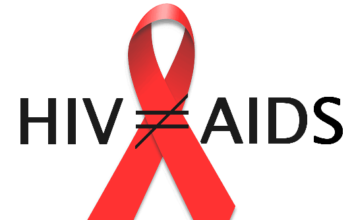The Osun State Government has issued a warning, threatening to prosecute and imprison anyone found guilty of stigmatizing individuals living with HIV/AIDS in the state.
This warning was announced in a public service message signed by Dr. Adeniyi Oginni, Executive Secretary of the Osun State Agency for the Control of AIDS.
Dr. Oginni expressed regret that stigma against people with HIV/AIDS has caused family disruption and trauma, and urged the public and employees to comply with the State HIV Anti-Discrimination Law, which carries penalties of fines, imprisonment, or both.
He emphasized that the government will not hesitate to enforce the law and hold offenders accountable.
The announcement read, “In recent times, there have been increasing reports of stigmatisation of people living with HIV in our state, most especially women and children.
“This has led to loss of job, disruption of family and extreme emotional trauma in the survivors thereby posing serious threats to public health.
“Consequently, it has become imperative to inform the general public that stigmatisation of people living with HIV is an offence by the provisions of the Osun State HIV Anti-Discrimination Law, 2021.
“Any person or institution found guilty of stigmatising or discriminating against people living with HIV either by denying them job or means of livelihood, or disclosing their status to other persons without their consent is liable to penalties which range from payment of fines to imprisonment without option of fine or both.
“The general public is hereby warned against violation of this law as the Gender and Human Rights Response Team in the state will see to the prosecution of offenders to safeguard the health of every resident of the state. To be fore-warned is to be fore-armed.”
The World Health Organization (WHO) has defined Human Immunodeficiency Virus (HIV) as a malicious infection that launches a devastating attack on the body’s immune system, specifically targeting the vital white blood cells known as CD4 cells.
This destructive process cripples the immune system, leaving individuals vulnerable to a wide range of opportunistic infections, including tuberculosis, fungal infections, severe bacterial infections, and certain types of cancer.
According to WHO, the ravaging effects of HIV on CD4 cells severely compromise a person’s immunity, making them susceptible to various diseases and health complications.
In light of this, the global health authority has set ambitious targets to significantly reduce the number of HIV infections worldwide, from 1.5 million in 2020 to a mere 335,000 by 2030.
Additionally, WHO aims to decrease the number of deaths caused by HIV from 680,000 in 2020 to fewer than 240,000 by 2030.
To achieve these goals, WHO emphasizes the importance of promptly initiating antiretroviral treatment (ART) for individuals diagnosed with HIV, followed by regular monitoring through clinical and laboratory assessments, including viral load evaluations.
Consistent adherence to ART not only effectively manages the infection but also prevents transmission to others, thereby containing the spread of the virus.
Furthermore, WHO stresses that early detection and treatment are crucial in preventing the progression of HIV to Acquired Immunodeficiency Syndrome (AIDS), a condition characterized by a severely compromised immune system, making individuals highly susceptible to life-threatening infections and cancers.
By prioritizing HIV prevention, treatment, and care, WHO seeks to mitigate the impact of this global health crisis and improve the lives of millions affected by the virus.
